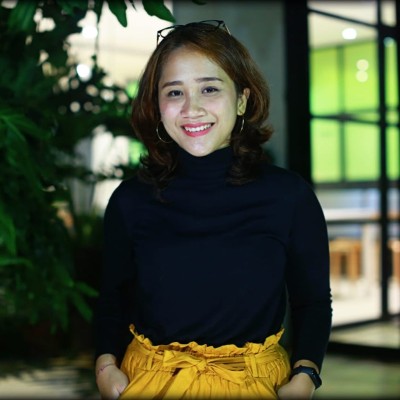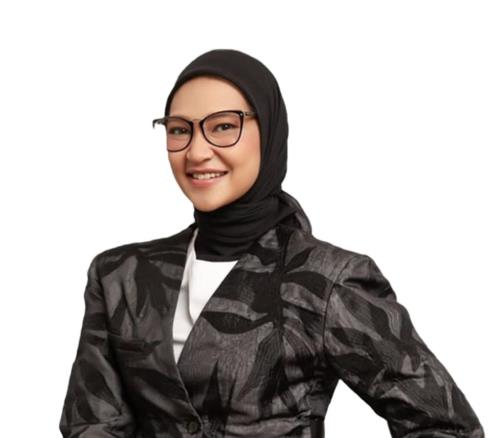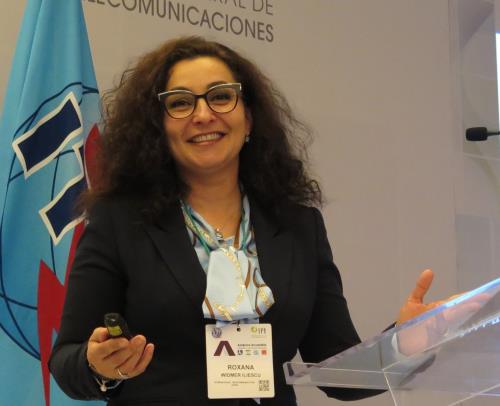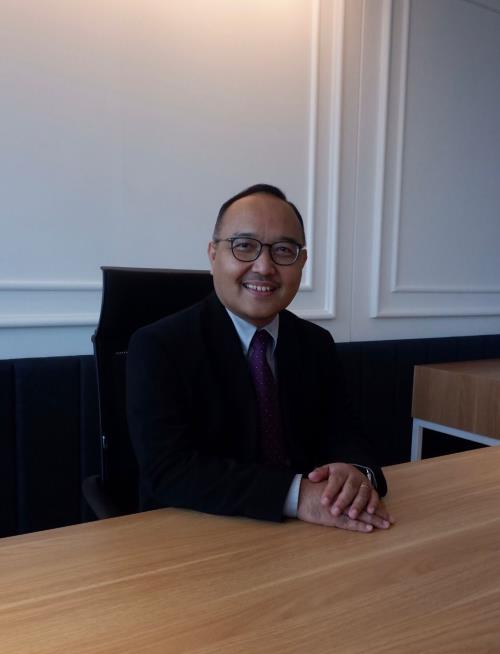Strengthening the Collaboration of Digital Literacy for Disabilities
Ministry of Communication and Information Technology, Indonesia
Session 181
A survey conducted by the Central Statistics Bureau (BPS) Indonesia reveals that the number of people with disabilities in Indonesia reached around 22.5 million people in 2022. This number has increased from 2021 which amounted to 16.5 million. Unfortunately, this trend isn't matched by the level of productivity of persons with disabilities in Indonesia. The same research shows that only 7.6 million out of 17 million persons with disabilities of productive age are working. The low participation of persons with disabilities in the workforce is caused by the emergence of the industrial revolution 4.0, which prioritizes digital talent as an absolute requirement for competent human resources. Even the need for digital talent is projected to be at least 600,000 people each year (Ministry of Communication and Informatics Republic of Indonesia, 2022)
On the other hand, a study found out that there’s still a digital divide between persons with disabilities and non-disabilities in Indonesia (Prestianta et. al, 2018). According to Windasari et. al (2011), this digital divide includes three aspects, namely, gaps in accessing technology which cause differences in distribution of information, gaps in technology use skills, and gaps in utilizing information obtained from the internet. However, this problem can be overcomed by providing education and training about digital technology that is focused and specific for those who are excluded. This is also regulated in Law number 8 year 2016, where public policies and programs must be inclusive and accessible to persons with disabilities in Indonesia.
Seeing the gap between the needs of digital talents and the digital competencies of persons with disabilities, the Ministry of Communication and Informatics of Republic Indonesia (Kominfo) in collaboration with the National Movement for Digital Literacy (GNLD) Siberkreasi initiated an inclusive digital literacy program for persons with disabilities. This program is aimed to increase persons with disabilities’s awareness about the importance of digital competence and to equip them with appropriate digital skills
By holding this forum we hoped that we can provide an overview to the audiences regarding Indonesia's efforts in strengthening collaboration with multistakeholders on providing equal access to digital literacy for persons with disabilities in Indonesia. Ultimately, it is hoped that there will be discussions with the participants in overcoming the problem of inequality of access faced by persons with disabilities.

Ida Ayu Prasasti is a Program Director at ICT Watch Indonesia. She is active in digital literacy activities, suicide prevention, empowering women and young people, and multistakeholder partnerships at local and global levels. As a communication and public policy alumnus, she is also active in advocacy and public communication planning & strategies, especially during the pandemic for Jakarta Provincial Government, as well as mental health and suicide prevention campaigns with local& global experts, media and digital platforms.
Currently, she's also actively campaigning for collaboration to combat hoaxes & disinformation, promoting digital security, fostering women's rights in the digital sphere, and strengthening multistakeholder partnerships in Indonesia.
ICT Watch is the pioneer that established one of the first digital literacy campaigns in Indonesia in 2002, called "Internet Sehat" (Cyber Wise). In May 2017 in Geneva, ICT Watch received an international award, The World Summit on the Information Society (WSIS) Winner, from the United Nations (UN) - International Telecommunication Union (ITU). The WSIS committee considers an "Internet Sehat" campaign program an excellent advocacy strategy from-by-for the community. On October 2017, together with other multistakeholder (government, civil society, private sector, academia technical community), ICT Watch initiated the SIBERKREASI, the Digital Literacy National Movement. She may be contacted via e-mail sasti [at] ictwatch.id

Angkie Yudistia is now an Indonesia’s Presidential Special Staffer. She grows her love in the field of communication, therefore she gained her bachelor degree in advertising and pursued her master degree in marketing communication, both from London School of Public Relations. Recently she received “The Alpha Under 40 award for High End Magazine. Besides her outstanding achievement and career, Angkie is a hard hearing person, and this fact made her soul longed to help disabled people in Indonesia. She is the author of the book “A Deaf Woman Through The Limits”. Furthermore, she also established Thisable Enterprise in 2011, a non-government organization which aim to empower and enlighten disabled in Indonesia to be financially independent. By this far, the organization has trained 5.272 and empowered more that 400 disabled people to work at a vocational and professional level.

Roxana WIDMER-ILIESCU has been working at the International Telecommunication Union (ITU) Development Sector (ITU-D) since 1998. As Senior Programme Officer in charge of Digital Inclusion, she promotes the empowerment through ICTs of persons with specific needs – including Indigenous peoples, women and girls, youth, persons with disabilities (PwD) and the elderly. To achieve this, Ms. Widmer leads and coordinates the development of activities that enable these groups to further their social and economic development through access to and use of ICTs. As ITU-D Focal Point for ICT Accessibility, she also advises ITU Members on designing policies and executing strategies for promoting and implementing ICT accessibly services and solutions for PwD in their respective countries. To support global implementation, she directed the development of several ITU-D key resources, including: the “Web Accessibility Programme ”Internet for @ll”, the on-line trainings “ICT accessibility: the key to inclusive communication”, video-tutorials on the development and remediation of accessible digital content. These are concrete tools that can be used by all stakeholders to ensure that PwD can use affordable and accessible ICTs as well as to promote inclusiveness in the digital era. In her work with the ITU regional offices, Ms. Widmer also advocates for the promotion of the accessibility of ICTs and encourages implementation of ICT accessibility policies and services for PwD. Moreover, to strengthen regional capacity in ICT accessibility she also delivers ITU-certified executive trainings to stakeholders during regional events, most recently at ‘Accessible Americas: ICT for ALL’ held Jamaica from 28 to 30 November. The ultimate goal of Ms. Widmer’s work is to contribute to building inclusive digital societies globally.

Mr. Bonifasius Wahyu Pujianto obtained his Doctoral Degree in IT Technology Program at KAIST University, South Korea. Prior, he worked for Indonesian Ministry of Communication and Information Technology and was responsible for e‐Government implementation, particularly on E‐Government Application. Several achievements on Government projects have been received such as design and implementation of a safe and secure internet program, establishing Presidential Instruction on e‐Government, setting up several e‐Government standards, etc. He is also active in several international co‐operations and member of international working groups such as ApecTel WG on E‐Government, WSIS (Indonesia committee member), ITU, Open e‐Governance Forum, Korea Indonesia Cooperation projects, and many others.
-
 C10. Ethical dimensions of the Information Society
C10. Ethical dimensions of the Information Society
-
 Goal 4: Ensure inclusive and equitable quality education and promote lifelong learning opportunities for all
Goal 4: Ensure inclusive and equitable quality education and promote lifelong learning opportunities for all